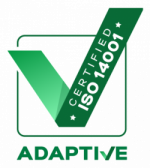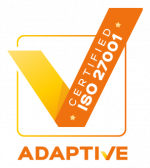*Unaccredited
Are you ready for certification?
The comprehensive checklist will assist in your preparation for an external certification visit from the team at Adaptive.
About Us | Adaptive Certifications | Certification Provider | Australia
Looking for assistance to achieve management system certification?
Certification Downloadable Guides
Each downloadable guide includes an introduction, benefits, clause breakdowns and system build project maps.
Adaptive Certifications | ISO Certification Services | Australia
Introduction to ISO 9001:2015
ISO 9001:2015 outlines the requirements for a quality management system (QMS) to consistently deliver quality products and services to its customers and stakeholders. It also acts as an excellent foundation for the implementation of a range of other
management standards.
Introduction to ISO 14001:2015
ISO 14001:2015 outlines the requirements for an effective environmental management system (EMS) that allows organisations to consider all environmental issues relevant to their operations. It can be easily integrated with other ISO management systems and requires the continuous improvement of systems and approaches to environmental concerns.
Introduction to ISO 45001:2018
Employees are the most valuable resource
that an organisation has. Companies need to ensure the continued safety of employees in the workplace, preventing injury and ill health as a direct result of work-related incidents. ISO 45001:2018 exists to provide a framework for an efficient Occupational Health and Safety Management (OHSM) in your company.
Introduction to ISO 27001:2022
ISO 27001:2022 exists to address
information security risks through an
effective Information Security Management
System (ISMS). Achieving ISO 27001
certification does not guarantee that
information breaches will never occur, but
instead creates a robust system to reduce
risks and disruptions, thereby keeping costs
to a minimum.
Introduction to HACCP
Hazard Analysis Critical Control Points
(HACCP) is a preventative system build on
the application of scientific principles. As a
globally recognised standard for food safety
management., HACCP was established to
ensure food safety from farm to table. The
accreditation is based on the principle that
prevention of hazards, such as food
contamination, cannot be accomplished by
end-product inspection.











